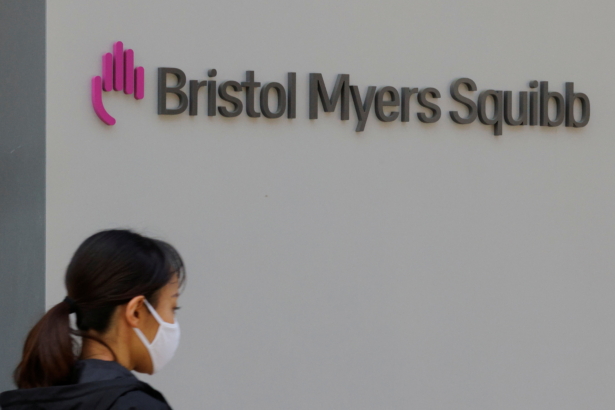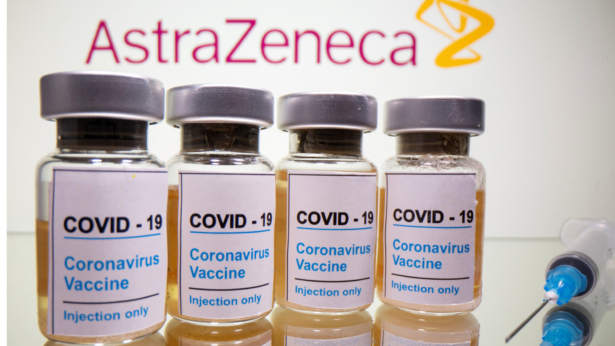The costs of over 350 different drugs are set to rise in the United States this year as multiple pharmaceutical companies, including Pfizer, prepare for President Joe Biden’s Inflation Reduction Act (IRA) to take effect and inflation continues to soar.
Pfizer, AstraZeneca, GlaxoSmithKline, Bristol Myers Squibb, and Sanofi are among several drugmakers set to raise prices on more than 350 products from January, according to an analysis conducted by health care research firm 3 Axis Advisors.
Along with the IRA, the price hikes are also in response to the soaring cost of living and continued supply chain constraints that have led to higher manufacturing costs.
Under the IRA, the government’s Medicare program will be able to directly negotiate the prices of some drugs that don’t have competition starting in 2026. The increases are on list prices, which do not include rebates to pharmacy benefit managers and other discounts.
The Medicare health insurance program covers individuals who are 65 or older and those with certain disabilities.
Specifically, the provision allows the government to negotiate a “fair price” for 10 drugs covered by Medicare Part D in 2023, with those prices being implemented three years later. The negotiated price list expands to 15 drugs in 2027 and 2028 and 20 in 2029.
Drugs selected for 2026 price negotiation will be announced by Sept. 1, 2023, and manufacturers that don’t follow the negotiation requirements will be subject to tax and penalties.

Drugmakers Raised Cost of Over 1,000 Drugs in 2022
Although drugmakers tend to avoid implementing major price hikes, a drug pricing non-profit that is related to 3 Axis called 46brooklyn Research found that manufacturers raised the prices of 1,400 different drugs in 2022, marking the most increases since 2015.
According to 46brooklyn, the median drug price increase was 4.9 percent last year, while the average increase was 6.4 percent. Both of those increases are, however, lower than the current inflation rates in the United States.
However, Antonio Ciaccia, president of 3 Axis, said that the IRA would implement a dynamic in which drugmakers launch products at higher costs so that further price hikes aren’t required.
An example is Biogen’s highly controversial Alzheimer’s drug Aduhelm, which initially came with a price tag of $56,000 per year. That was later halved following public backlash and scrutiny over the drug’s efficacy.
A report released on Dec. 29 by the House Oversight and Energy and Commerce committees found that the U.S. Food and Drug Administration’s approval process for the drug was “rife with irregularities” and “highly atypical.”
“Drugmakers have to take a harder look at calibrating those launch prices out of the gate … so they don’t box themselves in to the point where in the future, they can’t price increase their way back into profitability,” Ciaccia said.
To date, Pfizer has announced the most increases across 89 unique drug brands, including a 6 percent rise in the cost of Xeljanz, a treatment for autoimmune diseases including rheumatoid arthritis and ulcerative colitis, and 7.9 percent increases for cancer drugs Ibrance and Xalkori.
The New York-headquartered company also implemented an additional increase in 10 drug brands at its Hospira subsidiary.

Inflation Is 1 Reason for Price Hikes
London-headquartered GSK, formerly GlaxoSmithKline, has announced the second highest amount of increases, with planned hikes so far in 26 unique drugs, including nearly a 7 percent increase on its FDA-approved vaccine for the prevention of shingles, Shingrix.
COVID-19 vaccine maker AstraZeneca is also set to raise prices around 3 percent for its blood cancer treatment Calquence, non-small cell lung cancer drug Tagrisso, and asthma treatment Fasenra, while Bristol Myers Squibb is set to hike its CAR-T cell therapies Abecma and Breyanzi by 9 percent. Both of those blood cancer treatments were already more than $400,000 a year.
French multinational pharmaceutical and health care company Sanofi also plans to raise prices on 14 of its drugs or vaccines.
A Pfizer spokesperson attributed the price hikes to much-needed support investments in drug discovery and noted that net prices—those the company actually receives for its drugs—have fallen in the past four years owing to what Pfizer says are higher rebates and discounts paid to insurance companies and pharmacy benefit managers.
AstraZeneca spokesman Brendan McEvoy said the company has “always taken a thoughtful approach to pricing, and we continue to do so, considering many factors.”
A spokesperson for Bristol Myers Squibb credited the price hikes to increased inflation, the value of the therapies, and the “personalized nature” behind the manufacturing of CAR-T cell therapies.
A Sanofi spokesperson said the price hikes in 2023 are “consistent with its approach to responsible pricing, adherence to government policies, and the need to respond to evolving trends in the marketplace.”
Reuters contributed to this report.
From The Epoch Times
